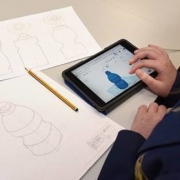Why paper certificates are still so valuable in the education sector

Despite Covid-19 causing disruptive challenges to the education sector and wider, there were 10.3 million examination certificates given out in the UK during the 2019-2020 school year[1]. Looking ahead to 2022, world-leading print security firm, Zunoma is ready to assist awarding bodies by offering a complete service from design to delivery in time for the exam season.
Although there are environmental benefits to having digital certificates, digital crime is on the rise. In 2020, as many moved online during the pandemic, there were over 300,000 reports of fraud and cybercrime in the UK[2]. With those under the age of 25 the largest target of cybercrimes[3], students need assurance that their data, transcripts and qualifications are stored correctly. Security-embedded printed certificates as well as digital versions, should be available, to ensure that students are equipped for all possibilities.
Furthermore, as the world continues to undergo a digital transformation, there are still many people who prefer physical copies of significant and meaningful documents. A tangible certificate and transcript are a visual reminder of well-achieved accomplishments, as well as being an important academic record to show future employers.
Dinah Ouzman, Director of Strategy & Product Development at Zunoma, said: “At Zunoma, we recognise how important it is for students to receive physical copies of their education certificates. However, digital copies are easier when sharing records and may be seen as the favoured option.
“With this in mind, not only do we offer a digital certification service for the education sector, but a comprehensive verification service with encrypted features for prospective employers. We developed eValidate, an effective and simple app that works both on and offline to decrypt data on the certificate and confirm authenticity.”
Many universities across the country have already begun the move to include a hybrid print and digital certification solution as a faster route of sharing and avoiding additional charges. With some examining bodies charging up to £50[4] for a replacement certificate, digital alternatives are a much more appealing and cost-effective alternative to the student.
Roy Mullins, Business Development Manager at Zunoma, said: “We have worked with a number of education providers including University of Arts London, Ministry of Education Namibia, London Institute of Banking and Finance and more, to ensure a smooth and secure solution. Both our digital and print products are mirrored with the same amount of security to ensure fraudulent copies cannot be produced.”
Zunoma advise many educational institutions on the most appropriate security measures to incorporate into each product. Additionally, Zunoma also offers Ecertsecure, a secure online web portal that enables organisations to create, print or send certificates securely. These products help to protect a brands reputation from any damage created by fraud.
Zunoma provide a complete design, print and personalisation service of multiple education documents and is trusted by examination and awarding bodies in the UK and internationally.
To find out more about the services Zunoma can provide to the education sector, please visit: www.zunoma.com/security-print-software/certificates-education
[1]https://assets.publishing.service.gov.uk/government/uploads/system/uploads/attachment_data/file/960952/Annual_Qualifications_Market_Report_academic_year_2019_to_2020.pdf
[2] https://www.comparitech.com/blog/information-security/uk-cyber-security-statistics/
[3] https://www.cbs.nl/en-gb/news/2019/29/1-2-million-cybercrime-victims
[4] https://www.ocr.org.uk/students/replacement-certificates/


